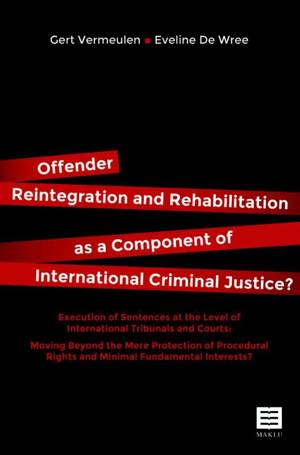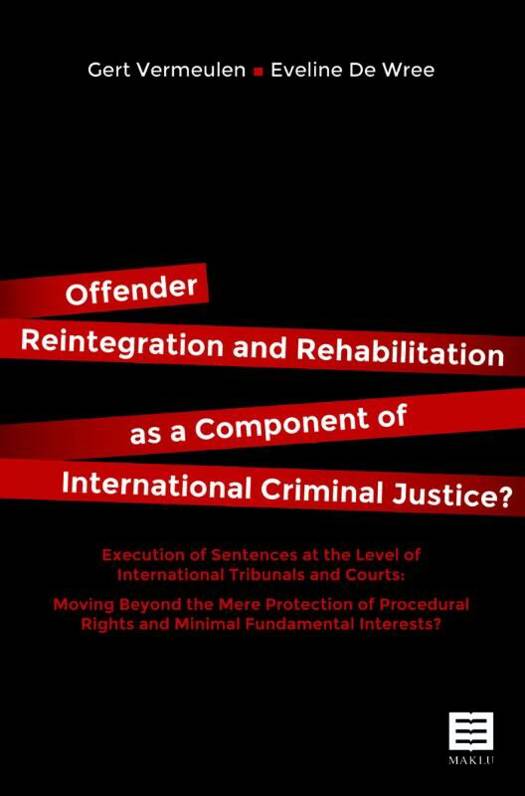
- Afhalen na 1 uur in een winkel met voorraad
- Gratis thuislevering in België vanaf € 30
- Ruim aanbod met 7 miljoen producten
- Afhalen na 1 uur in een winkel met voorraad
- Gratis thuislevering in België vanaf € 30
- Ruim aanbod met 7 miljoen producten
Zoeken
Offender Reintegration and Rehabilitation as a Component of International Criminal Justice?
Execution of Sentences at the Level of International Tribunals and Courts: Moving Beyond the Mere Protection of Procedural Rights and Minimal Fundamental Interests?
Gert Vermeulen, Eveline de Wree
Paperback | Engels
€ 27,00
+ 54 punten
Omschrijving
Historically, little attention was paid to the execution of sentences passed at the level of international courts and tribunals. Capital punishment was still used and custodial sanctions were imposed in the relevant states. It was not until the 1990s, with the creation of the ad hoc tribunals, that the execution of sentences also became a task for international tribunals, in cooperation with, and by means of transferring the sentenced person to, a state which had committed itself to executing the sentence. The basic principles of these vertical transfer procedures are characterized by a system logic, with a limited role for the sentenced person, as is also the case at the level of the ICC. Nonetheless, minimal human rights and international standards for the execution of sentences (as agreed upon at the level of the UN) are respected. This book investigates if, and to what extent, the interests of the sentenced person could be better pursued and enhanced during vertical procedures for the execution of sentences. It therefore takes a clear-cut rehabilitation and social integration perspective. Given the dominant representation of EU Member States among States willing to execute sentences passed by international tribunals and courts, the book wonders whether practice should not evolve towards reflecting the obligatory compliance of these States with, besides the UN standards, additional (sometimes wider, more precise and higher) Council of Europe and EU standards. This would be reflected in the policies of the tribunals and courts (especially the ICC) relating to the conclusion of sentence execution agreements with states, as well as in the actual case-based decisions in which particular sentence execution states are chosen. The book further pleads for the conclusion of a bilateral EU-ICC agreement on the execution of sentences, since this would constitute an important contribution to international justice, and one that is likely to make the reintegration and rehabilitation of offenders (a greater) part of it.
Specificaties
Betrokkenen
- Auteur(s):
- Uitgeverij:
Inhoud
- Aantal bladzijden:
- 134
- Taal:
- Engels
Eigenschappen
- Productcode (EAN):
- 9789046606513
- Verschijningsdatum:
- 10/02/2014
- Uitvoering:
- Paperback
- Formaat:
- Trade paperback (VS)
- Afmetingen:
- 160 mm x 239 mm
- Gewicht:
- 226 g

Alleen bij Standaard Boekhandel
+ 54 punten op je klantenkaart van Standaard Boekhandel
Beoordelingen
We publiceren alleen reviews die voldoen aan de voorwaarden voor reviews. Bekijk onze voorwaarden voor reviews.











